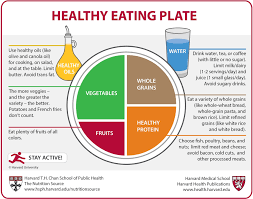
Why We Need to Talk about Non-Communicable Diseases

With so much attention over the past year-plus focused on COVID-19, there was little time to discuss one of the largest killers: non-communicable or chronic diseases. Unlike diseases that can spread, non-communicable diseases can be controlled and often prevented. That was the key message of the April 12 Grande Rounds webinar with Salim S. Virani, MD, Ph.D., a tenured professor in Cardiology and Cardiovascular Research, Director for the Cardiovascular Disease Fellowship at Baylor College of Medicine, and Cardiologist at the Michael E. DeBakey Veterans Affairs Medical Center in Houston, TX.
Dr. Virani addressed the big four NCDs –cardiovascular diseases (like heart attack and stroke), cancer chronic respiratory diseases (like COPD) and diabetes – and discussed prevention and ways to address the common risk factors. NCDs are diseases of long duration and generally slow progression and they share common risk factors, chief among them are diet, obesity and smoking. According to the World Health Organization, NCDs account for more than 36 million deaths worldwide. Every 10 deaths are attributable to NCDs. Many of these deaths occur in people less than 60 years of age.
The ABCDE’s of Prevention

According to Dr. Virani, prevention is as easy as ABCDE. Here are the key takeaways from the webinar:
- A. Assess. Risk estimators can help you assess your 10-year risk of heart attack or stroke. Share the results with your physician and discuss whether or not you should take aspirin.
- B. Blood Pressure. Routinely check your blood pressure and talk with your doctor about ways to manage it. Easy ways include a diet rich in fruits, vegetable, decreasing your sodium intake, stopping smoking, weight management – and taking medications as prescribed!
- C. Cholesterol and Cigarette (tobacco cessation). L is for “lousy,” H is for “high” (good) when it comes to cholesterol. Know your numbers and seek ways to manage your levels. Stop smoking of (all tobacco products).
- D. Diet/weight management and Diabetes. We are not seeing any meaningful decline in obesity or diabetes. In fact, these are on the rise as a result of the pandemic. Diabetes and obesity can reduce longevity by 7-8 years and those with it are 2-4 times more likely to have a heart attack. Prevention is key and starts with weight loss, exercise and diet. A diet high in fruits and vegetables, low in red and processed meats and sugary drinks is best. Follow a pattern that will work for you and stay with you for life. Also, talk to your doctor about new medications available to reduce sugar and heart risk.
- E. Exercise. Regular physical activity, or accumulated activity week over week, is what you’re looking to achieve. Just walking, even at slow pace, helps.
A replay of the webinar, “Why is Everyone Talking about Non-Communicable Diseases? The Biggest Killer but Definitely Preventable,” is available at https://vimeo.com/536369427/736bc3f7eb. The Grande Rounds are medical education events hosted by the Boca Grande Health Clinic and the Boca Grande Health Foundation and open to Clinic patients and the public at large.
Dr. Virani serves as the Director for the Cardiovascular Disease Fellowship Training Program at Baylor College of Medicine and Co-Director for the VA Advanced Fellowship Program in Health Services Research & Development at MEDVAMC. He earned his medical degree from the Aga Khan University Medical College in Pakistan, graduating with the Best Medical Graduate Award. Dr. Virani completed a residency in Internal Medicine at the University of Miami, there receiving an award as the Best Resident. He then completed a Cardiology fellowship at the Texas Heart Institute, where he served as the Chief Cardiology Fellow and received Tauber Award for the Outstanding Graduating Fellow. His clinical practice includes being a Preventive Cardiologist at Baylor College of Medicine and the Michael E. DeBakey VA Medical Center (MEDVAMC), with a special emphasis on management of complex dyslipidemias.
Learn More
- The American College of Cardiology created a risk estimator that helps healthcare providers and patients to estimate 10-year and lifetime risks for atherosclerotic cardiovascular disease (ASCVD), defined as coronary death or nonfatal myocardial infarction, or fatal or nonfatal stroke, based on the Pooled Cohort Equations and lifetime risk prediction.
- The Healthy Eating Plate, created by experts at Harvard School of Public Health and Harvard Medical School, points consumers to the healthiest choices in the major food groups. Use the Healthy Eating Plate as a guide for creating healthy, balanced meals.
- Learn more from the World Health Organization about NCDs.
More Recent Healthcare News

Every year we celebrate Doctor’s Day and Nurses Week, but there’s one more recognition event that’s just as important. Administrative Professionals Day is April 24th this year and I want to be sure to bring special attention to three incredibly special members of the Boca Grande Health Clinic family. Jonna Foos, Director of Operations Jonna […]

April, the birth month of James Parkinson, is Parkinson’s Disease Awareness Month. Parkinson’s is a degenerative syndrome that results in the gradual loss of brain circuitry involved in movement, thinking and behavior. According to the National Institutes of Health (NIH), the first clear medical description of Parkinson’s Disease as a neurological condition was written in […]

March 30th marks a special day on our calendar – Doctor’s Day! It’s a time to honor those who dedicate their lives to caring for us. At the Boca Grande Health Clinic, it’s the extraordinary team of board-certified physicians – Dr. Raymond A. James, our Medical Director; Dr. Bret Kueber, the Assistant Medical Director; and […]

Ask a Doc: Kicking Colon Cancer in the Butt
March 22, 2024According to the American Cancer Society, the lifetime risk of developing colorectal cancer is about 1 in 23 for men and 1 in 25 for women. The death rate from colorectal cancer has been dropping in older adults for several decades. Unfortunately, colorectal cancers now rank as the leading cause of cancer death in men […]
